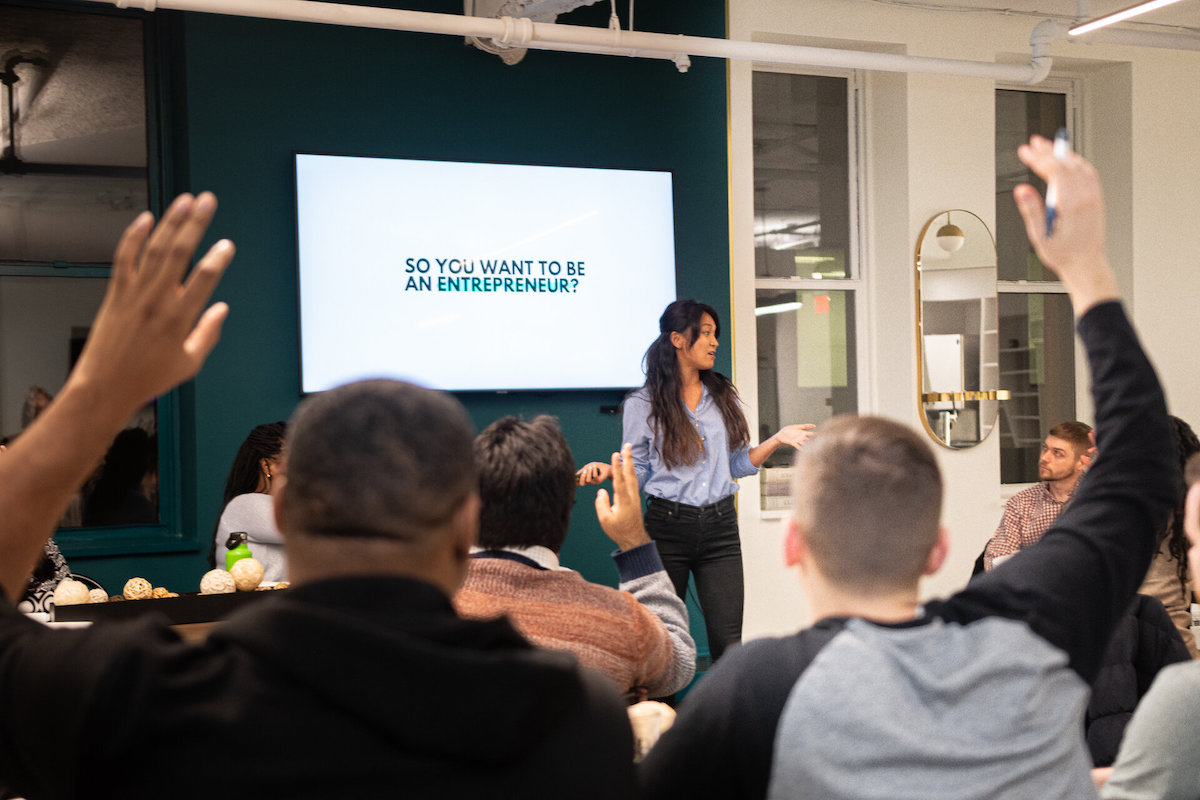Philly Startup Leaders’ (PSL) programming has been evolving along with the pandemic and changes to the entrepreneurship nonprofit and community org’s leadership over the past few years.
With the new year comes with some more changes for the org’s accelerator programs: From March through May 2022, founders can participate in the Cannabiz accelerator, for businesses working in the cannabis industry, and the Ethical Entrepreneurship accelerator, for businesses with a social, environmental or economic mission.
Head of Programs Beth Lawrence has experience working in the cannabis industry in an events role going back to 2018. She knew that there needed to be a space to bring more people not currently represented in the quickly growing industry into the fold.
“With cannabis, I saw the same thing over and over — all older white, Wall Street types in business. And the industry I know doesn’t look like that,” Lawrence said. “A lot of people of color are still in prison for marijuana-related charges.”
The cannabis business is emerging as a permanent — and lucrative — fixture in society. Recreational use is legal or becoming legalized in nearby states like New Jersey and Delaware with equity central to conversations in both, while decriminalization in Philadelphia is leading to new laws prohibiting certain employers from testing their employees for the drug. Legalization of recreational use may be on the way in Pennsylvania.
At the same time, there’s inequity in who is benefitting from newer laws allowing the controlled sale of cannabis. Consider this June 2021 headline: “Cannabis is projected to be a $70 billion market by 2028 — yet those hurt most by the war on drugs lack access.” It’s an issue groups like the Philadelphia CannaBusiness Association and the Philadelphia Association of Black Journalists’ Cannabis Education Conference have been highlighting in recent years.
Elsewhere in Philly, University of the Sciences offers an MBA program on the business of cannabis, and a few other universities in the region offer cannabis-related courses.
The businesses in PSL’s accelerator won’t be ones actually producing marijuana, but there are lots of ancillary business in the medical cannabis industry currently legal in Pennsylvania, like lighting companies, soil companies, staffing companies or human resources. Cannatech, industrial hemp, CPG canna-beverage, and other supporting services are also examples.

Such companies offer a lower barrier to entry for people traditionally left out of the industry, Lawrence said. They also present a way to get into the lucrative field without navigating the legalities and regulations of marijuana itself.
The accelerator will have the business leaders consulting with lawyers and participating in workshops with industry experts, peer-matched mentorships, pitch prep workshops, lightning pitch competitions with local investors, and consultative office hours.
Meanwhile, the ethical entrepreneurship accelerator will look closer to what previous versions of PSL’s MVP (that is, more established business idea) accelerator offered, as many previous accelerator companies had mission-driven concepts themselves.
These accelerators are taking applicants through Jan. 28, and the programing will run for 10 weeks on Tuesday nights from March through May, where there will be an end-of-program opportunity to present at PSL’s Entrepreneur Expo.
Learn more and applyIn the fall, two more brand-new accelerators focusing on consumer packaged goods and supply chain will roll out for entrepreneurs in those spaces.
“If we’re really going to explore equitable entrepreneurship, we have to look outside of Philly’s already well-established industries of eds and meds,” Executive Director Isabelle Kent said. “There are a lot of folks who are probably more familiar with a packaged consumer good than with enterprise technology. So aiming for more diversity in entrepreneurship, that’s a good start and the city has a history of industrial goods.”
Its idea-stage accelerator is also seeing a change. Instead of weekly meetings like the MVP stage, PSL will offer three day-and-a-half crash courses this year in February, May and October to help folks align their business ideas toward finding their market.
Kent anticipates PSL’s programs will continue to change as areas of opportunity do, too.
“We saw after the pandemic that the most congruence among these accelerators was to build excellence for the city,” she said. “And we wanted to specifically chose sectors that have lower barriers to entry and the talent pools that already exist here. We want to speak to the smaller sectors in Philadelphia that don’t already have other programs representing them.”







